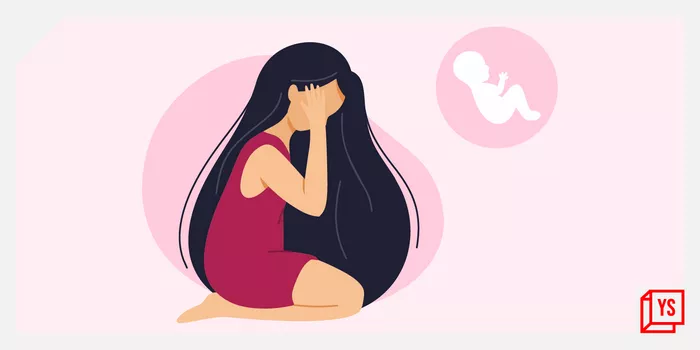Infertility is a condition that affects numerous couples around the world, causing distress and uncertainty. It is defined as the inability to achieve a successful pregnancy after one year of regular, unprotected sexual intercourse. Understanding the different types of infertility is crucial for proper diagnosis and the formulation of effective treatment strategies. There are primarily three main types of infertility, each with its own set of causes and characteristics. In this article, we will explore these three types in detail, shedding light on the complex nature of infertility and the factors that contribute to it.
Primary Infertility
Definition and Characteristics
Causes in Females
Ovulatory Disorders: One of the common causes is anovulation, which means the ovaries fail to release an egg regularly. Conditions like Polycystic Ovary Syndrome (PCOS) can disrupt the normal hormonal balance that regulates ovulation. Women with PCOS may have irregular menstrual cycles or even no periods at all. The hormonal imbalance can lead to the formation of multiple cysts on the ovaries and prevent the release of a healthy egg, which is essential for fertilization.
Tubal Blockages: Pelvic Inflammatory Disease (PID), often caused by sexually transmitted infections such as chlamydia or gonorrhea, can result in scarring and blockages in the fallopian tubes. If the tubes are blocked, the sperm cannot reach the egg for fertilization, or even if fertilization occurs, the fertilized egg cannot travel to the uterus for implantation. Endometriosis, where the tissue that lines the uterus grows outside the uterus, can also cause tubal blockages and adhesions, interfering with the normal reproductive process.
Causes in Males
Low Sperm Count: Hormonal imbalances, such as a deficiency in follicle-stimulating hormone (FSH) or luteinizing hormone (LH), can lead to a decrease in sperm production. Varicocele, which is the enlargement of veins in the scrotum, can also cause a reduction in sperm count. The increased temperature in the scrotum due to the varicocele can have a negative impact on sperm production.
Abnormal Sperm Quality: Genetic factors can play a role in sperm quality. Chromosomal abnormalities in sperm can affect their motility (ability to move) and morphology (shape). Poor sperm quality makes it difficult for the sperm to penetrate the egg and fertilize it successfully. Additionally, environmental factors like smoking, excessive alcohol consumption, and exposure to certain toxins can damage sperm DNA and membranes, leading to abnormal sperm quality.
Secondary Infertility
Definition and Occurrence
Causes in Females
Age-related Changes: As women age, the quality and quantity of their eggs decline. After a woman has had a child, the passage of time can further reduce her fertility. The eggs may become more genetically abnormal, increasing the risk of miscarriage and decreasing the chances of successful conception. Hormonal changes associated with aging, such as a decrease in estrogen levels, can also affect ovulation and the receptivity of the uterus to a fertilized egg.
Uterine Scarring: A previous cesarean section or other uterine surgeries can result in scarring in the uterus. This scar tissue can interfere with implantation of a fertilized egg. It can also cause abnormal bleeding and other menstrual irregularities that can contribute to infertility. Infections in the uterus after childbirth, such as endometritis, can also lead to scarring and affect fertility.
Causes in Males
Decline in Sperm Quality: Similar to females, male fertility can also decline with age. Older men may experience a decrease in sperm count, motility, and an increase in genetic abnormalities in sperm. Lifestyle factors that have changed since the first pregnancy, such as increased stress, a more sedentary lifestyle, or poor diet, can also have a negative impact on sperm quality.
Blockages in the Reproductive Tract: An injury or infection in the male reproductive tract after the first pregnancy can lead to blockages. For example, an episode of epididymitis (inflammation of the epididymis) can cause scarring and block the passage of sperm. Congenital blockages that were not previously detected may also become more apparent or cause problems as the man ages.
Unexplained Infertility
Definition and Diagnostic Dilemma
Possible Factors
Subtle Hormonal Imbalances: There may be minor hormonal fluctuations that are not detected by routine testing. For example, a slight imbalance in the ratio of estrogen to progesterone during the menstrual cycle could affect implantation. These subtle changes might not be significant enough to cause obvious symptoms or be picked up by standard hormonal assays.
Sperm Function Abnormalities: Although the sperm count, motility, and morphology may seem normal, there could be underlying issues with sperm function. The sperm may have problems with capacitation (a process that enables the sperm to fertilize the egg) or with binding to the zona pellucida (the outer layer of the egg). These functional defects are difficult to diagnose with conventional semen analysis.
Immunological Factors: In some cases, the immune system of either the male or female may play a role. The female’s immune system could potentially reject the sperm, considering it a foreign body. In the male, antibodies could be produced against his own sperm, affecting their motility and ability to fertilize the egg. However, detecting and confirming these immunological factors can be complex and requires specialized testing.
Diagnosis and Evaluation
Female Evaluation
Medical History: The doctor will take a detailed medical history, including information about previous pregnancies, menstrual cycles, any history of sexually transmitted infections, and surgeries. This helps to identify potential risk factors and narrow down the possible causes.
Hormonal Testing: Blood tests are conducted to measure levels of hormones such as FSH, LH, estrogen, progesterone, and testosterone. Abnormal hormone levels can indicate ovulatory disorders or other hormonal imbalances.
Imaging Studies: Ultrasound is commonly used to examine the ovaries, uterus, and fallopian tubes. It can detect conditions like PCOS, uterine fibroids, and tubal blockages. Hysterosalpingography (HSG) is another test that involves injecting a contrast dye into the uterus and fallopian tubes to check for blockages and the shape of the uterine cavity.
Male Evaluation
Semen Analysis: This is a crucial test that assesses sperm count, motility, morphology, and volume. It provides valuable information about the quality of the sperm. Multiple semen samples may be required for a more accurate assessment.
Hormonal Evaluation: Hormone levels such as testosterone, FSH, LH, and prolactin are measured. Abnormalities in these hormones can affect sperm production and quality.
Physical Examination: The doctor will examine the testicles, epididymis, and vas deferens to check for any structural abnormalities, such as varicoceles or blockages.
Treatment Options
For Primary and Secondary Infertility
Fertility Medications: For women with ovulatory disorders, medications like clomiphene citrate can be prescribed to stimulate ovulation. In some cases, gonadotropins may be used to directly stimulate the ovaries to produce eggs.
Surgical Interventions: In cases of tubal blockages in women, laparoscopic surgery can be performed to remove adhesions or repair the tubes. For men with varicoceles, varicocelectomy may be an option to improve sperm production.
Assisted Reproductive Technologies (ART): In vitro fertilization (IVF) is a common ART method. It involves retrieving eggs from the woman, fertilizing them with sperm in a laboratory, and then transferring the embryos back into the woman’s uterus. Intracytoplasmic sperm injection (ICSI) is another technique where a single sperm is injected directly into an egg, especially useful when there are issues with sperm quality or quantity.
For Unexplained Infertility
Empirical Treatment: Sometimes, a trial of fertility medications or intrauterine insemination (IUI) may be recommended. IUI involves placing washed sperm directly into the woman’s uterus at the time of ovulation, bypassing some of the potential barriers in the cervix and vagina.
Lifestyle Modifications: Both partners are often advised to make lifestyle changes. This includes maintaining a healthy weight, reducing stress, quitting smoking, and limiting alcohol consumption. These lifestyle modifications can have a positive impact on overall reproductive health and may improve the chances of conception, even in cases of unexplained infertility.
Conclusion
Related topics

























